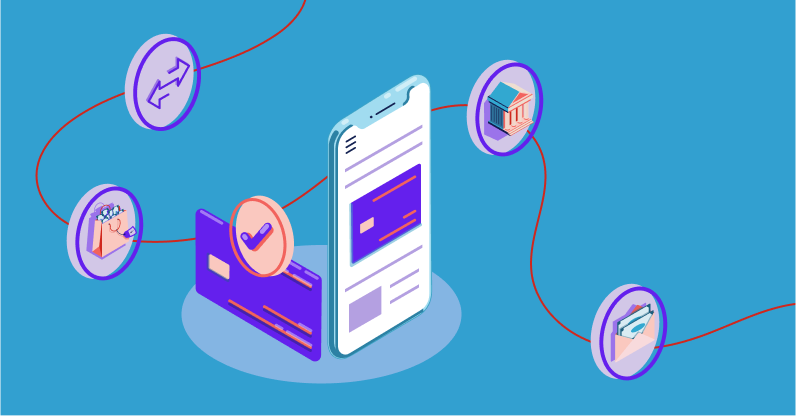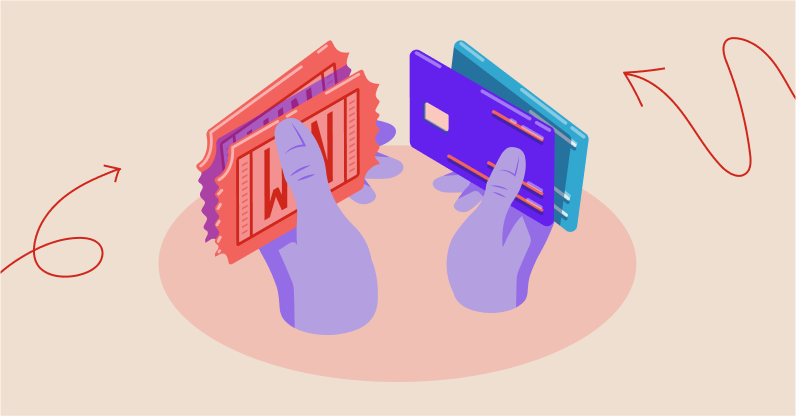Using prepaid debit cards to control your spending and help you save
Traditional banking isn’t for everyone and money management can get complicated. Prepaid debit cards may be a good option if you’re looking to control spending, better manage and pay bills, or even set aside or save money.
What’s a prepaid debit card?
There are different types of prepaid debit cards. For purposes of this article, we’re referring to payroll cards that can be provided by your employer in order for you to receive direct deposit, or prepaid debit cards you can sign up for yourself online.
Prepaid debit cards might be a good option for you if:
- You have no or low credit
- You’re looking to manage money better
- You’re trying to establish savings habits
While some people prefer using prepaid debit cards instead of using traditional banks, there are others who use a traditional bank account in addition to prepaid debit cards. Prepaid debit cards allow for easy paycheck check-splitting and bill-paying. They can also help you organize savings into “envelopes” or categories separate from a regular bank account. For some people, prepaid debit cards are a great way to build an emergency savings fund.
For people on a budget, prepaid debit cards can be a safeguard against overspending since you can’t spend more than what’s on the card, which also helps prevent overdraft fees. This could be another advantage over traditional bank accounts.
How do prepaid debit cards work?

Most people who receive a prepaid debit card from an employer or after signing up for one online will usually set up direct deposit of their pay onto their card. You can have your entire paycheck or part of your check distributed to your prepaid debit card. Whatever amount you receive on your card is the exact amount you are allowed to spend, save or transfer.
- Routing and account numbers. Your prepaid card does have a routing number and an account number for direct deposit loads – just like a traditional bank but without the checking and savings accounts.
- Shop online, in-app, by phone, or in-person. With prepaid debit cards, you can easily shop everywhere Visa® debit cards are accepted or where debit Mastercard® is accepted.
- Get cash back at the register. Similar to a traditional debit card you can also use prepaid debit cards to get cash back at the register when you make a purchase (at participating stores that offer debit purchases with cash back). Some prepaid debit cards even offer cash back reward programs, earning you cash back into your account when you shop at certain businesses.
- Cash withdrawal. You can get cash out at no cost at fee-free ATMs in your network (limits may apply). You can also get cash from out-of-network ATMs for a small transaction fee. ATM fees depend on your card’s terms and conditions.
And just like regular debit cards, prepaid debit cards have expiration dates. As the date approaches, you should receive a replacement card in the mail.
Prepaid debit cards are FDIC-insured and your funds are protected from fraud if your card is lost or stolen.
Get Wise
Wisely prepaid debit cards have no annual fees.1 No minimum balance fees. No fees on everyday spending. No overdraft fees. And a vast network of fee-free ATMs.2
Is a prepaid debit card the same as a prepaid card?
All prepaid cards are essentially prepaid debit cards, meaning you start with a certain amount on the card and transactions get deducted from the amount.
However, prepaid cards are more of a general term referring to cards bought in stores or online, which you can then add money to at the register for purposes of shopping, gift-giving, or setting money aside. These prepaid cards are also called stored-value cards. Once the money is used up, you’re not able to spend any more than the amount that was on the card.
Some prepaid cards do allow you to add more money to the card. There are often multiple options for adding money such as check deposit, direct deposit, tax-refund loads, and cash loads at the register of participating retailers for a fee.
Are there fee-free prepaid debit cards?

There is no completely fee-free card. There may be a number of fee-free features, such as:
- No monthly card minimums
- No fees to make purchases
- Free online bill payments
- Fee-free cash withdrawals at in-network ATMs
Again, all prepaid debit cards (even those marketed as no-fee prepaid debit cards), have some fees associated with certain types of transactions. This varies by type of card and may vary from state to state. Be sure to review the fee schedule and terms associated with your prepaid debit card to make sure you’re clear about any fees associated with your card.
What should I look for when choosing a prepaid debit card?
When you’re looking at a “no fee” prepaid debit card, here’s what to consider:
- A large network of ATMs close to you with fee-free options
- Fee-free purchases (online and in-person)
- Fee-free bill payments
- No minimum balance requirements
- No monthly or annual fees for using your prepaid card
Keep in mind, it’s common to have some fees for certain transactions, like withdrawing cash from out-of-network ATMs.
Can I get a prepaid debit card for direct deposit?
Absolutely. Prepaid debit cards can be obtained from some employers, online, or in stores. Once you have your card, you can set up direct deposit. This is usually free. You can do this through your employer’s HR portal or by contacting your payroll representative.
You can also set up direct deposit from second jobs to be deposited onto your prepaid debit card. Some people even direct deposit their tax refund and other government benefits onto their prepaid cards.
What’s the difference between a prepaid debit card and a bank debit card?
Although prepaid debit cards and regular bank debit cards work similarly, there are several key differences.
Get Wise
Wisely prepaid debit cards have no annual fees.1 No minimum balance fees. No fees on everyday spending. No overdraft fees. And a vast network of fee-free ATMs.2
How is a prepaid debit card different from a credit card?
Prepaid debit cards are quite different from credit cards. Here are some of the ways:
What are the benefits of using prepaid debit cards?
Some of the benefits of prepaid debit cards include having an automatic method of saving money, paycheck-splitting, or paying bills.
People who use prepaid debit cards may also prefer them to traditional banks because there are typically no overdraft fees, no monthly account minimums, and no card fees. With prepaid debit cards, there are also no credit checks, and you’ll simply have a safe alternative to carrying cash.

The benefits of prepaid debit cards include having an automatic method of saving money, paycheck-splitting, or paying bills.
Do I get a traditional checking or savings account with an online prepaid debit card?
No, there is no traditional checking or savings account with a prepaid debit card. Your card does have an associated routing number and account number (in addition to the card number itself), but this is not the same as having a checking or savings account.
You can use your prepaid debit card to transfer funds to or from a traditional or online bank account if you’d like. Keep in mind that there may be fees associated with this type of transfer.
How do you add money to a prepaid debit card?
Prepaid debit cards are reloadable. Most people reload funds via direct deposit from their employers. This is a free service that allows you to allocate some or all of your paycheck to your prepaid debit card every time you get paid.
If you wish to load additional funds to your card, there are multiple available options.
Can you build credit with a prepaid debit card?
No. Prepaid debit cards are not for building credit. This is because you are not “borrowing” from a creditor and therefore you’re not showing any payment history or track record of being responsible with credit.
If you wish to build credit, you may want to try a credit-builder loan, secured loan or co-signed loan. There are also credit-building solutions that help you build credit by looking at recurring payments like rent, phone, or utilities, that can help build a positive history of on-time payments.
 By the Wisely Team
By the Wisely Team
Looking for a prepaid debit card with no hidden fees?1 Get started with Wisely.

Footnotes
- To view applicable fees, please log in to the myWisely app or mywisely.com to see your cardholder agreement and list of all fees for more information. ↩
- The number of fee-free ATM transactions may be limited. Please see your cardholder agreement fee schedule for more information. ↩
This content is for informational purposes only and may have been derived, with permission, from a third party. While we believe it to be accurate as of the date of publication, it does not constitute the rendering of legal, accounting, tax, or investment advice or other professional services by ADP and it is being provided without any warranty whatsoever. Please consult with appropriate professionals related to your individual circumstances.
The Wisely Pay Visa® is issued by Fifth Third Bank, N.A., Member FDIC or Pathward®, N.A., Member FDIC, pursuant to a license from Visa U.S.A. Inc. The Wisely Pay Mastercard® is issued by Fifth Third Bank, N.A., Member FDIC or Pathward, N.A., Member FDIC, pursuant to license by Mastercard International Incorporated. The Wisely Direct Mastercard is issued by Fifth Third Bank, N.A., Member FDIC. ADP is a registered ISO of Fifth Third Bank, N.A., or Pathward, N.A. The Wisely Pay Visa card can be used everywhere Visa debit cards are accepted. Visa and the Visa logo are registered trademarks of Visa International Service Association. The Wisely Pay Mastercard and Wisely Direct Mastercard can be used where debit Mastercard is accepted. Mastercard and the circles design are registered trademarks of Mastercard International Incorporated.
ADP, the ADP logo, Wisely, myWisely, and the Wisely logo are registered trademarks of ADP, Inc.
Copyright © 2025 ADP, Inc. All rights reserved.
By clicking 'Leave', you will exit myWisely and be directed to a third party website which may have different privacy and security settings.
